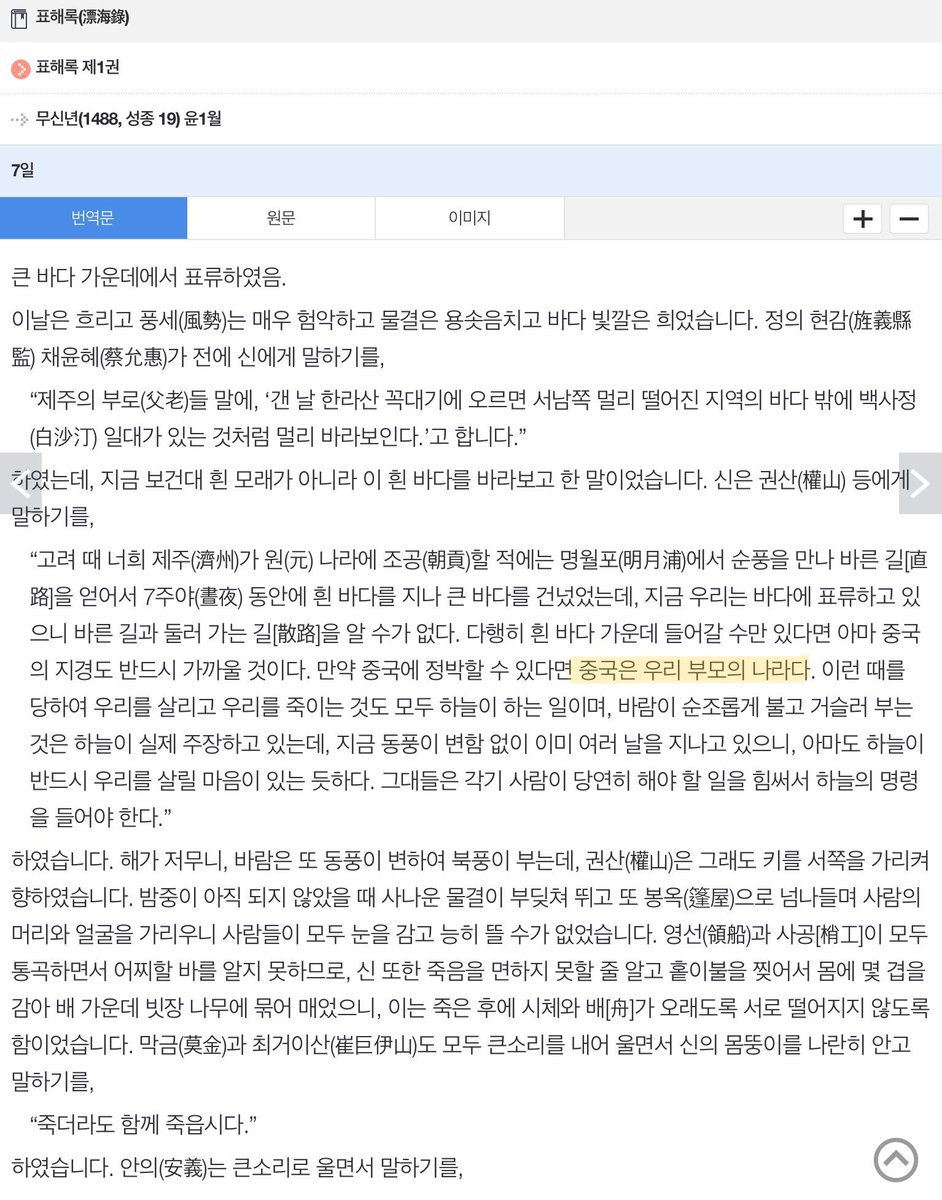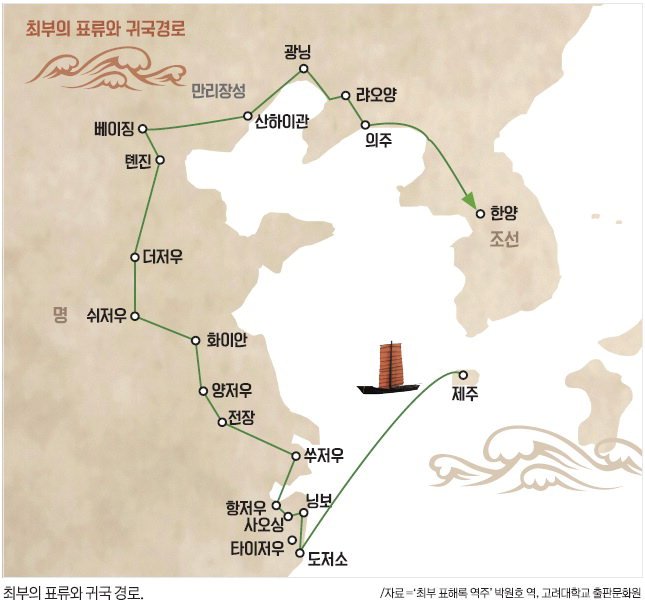A control society is a network society. Its language is digital.
In a society based on great discipline systems and narrative, the roles played by journalists (narrator, information provider, interpreter, watchdog), and the boundaries of their respective realms are relatively well defined. In a society based on the accelerated multiplication of data flows, and on the diffused ramification of networks and on the modulation of such flows, the journalist's role becomes hybrid, based as it is on epistemological, occupational and political quicksand.
The new ways in which this profession may evolve remain to be established, as well as whether or not they will ensure the survival of some of the traditional functions of journalism. Naturally the current trend must not be taken as a symptom of an inescapable fate. Likewise, we cannot simply look back to a glorified past (after all, was "independent" scientific journalism truly typical of editorial offices in the big media?). Weeping over a lost past is not conducive to surviving the present times, nor to paving the way for a different future. Control societies need critics who may well turn out not to be individuals, but rather emerge from the meshes of the net, in a "dividual", transverse and multiplied guise. -Yurij Castelfranchi
Projected Identity, The Database, and Deleuze & Guattari in Web 2.0
The following is a continuation of the connections between new media network interaction and Deleuze & Guattari's concepts in A Thousand Plateaus. That said, while it doesn't directly mention many other topics bouncing around online communities, parts can certainly be extended to conversations on attention (see Alex Barnett and Attention Trust for this) and the personal use of Web 2.0 applications. Also Adam Marsh at EconoMeta addresses a similar issue from an entirely different, yet very interesting, standpoint.
---
When interactiing in developing online media (anything from del.icio.us, to OkCupid, to MySpace) we are leaving traces of our identity, of our personality perhaps more accurately, everywhere we go, on everything with which we interact. This is becoming especially true in Web 2.0, and folksonomy-based applications where the process of interaction fundamentally alters the function and output of the interactive system. To speak in specifics, look at your Web-traces. If you're like me, you'll have a blog or two on which you have posted an array of material; you'll have several social network site profiles, one for each site, Friendster, MySpace, LinkedIn, etc; you'll have Last.FM and Pandora accounts, and so on. At each of these arenas you leave traces of your/a personality. There are the lists of reccomended music, your lists of friends, and any amount of data that we leave behind either intentionally or not through the process of interaction.
In aggregate these traces are our projected identity. It may be the combination of several pseudonymous sets of interaction, it may be bare-bones factual, but this is the sum identity that exists as a result of our movements through and interaction with these applications. The projected identity is inherently multiple. It is a multiplicity. It draws from the many interactions, personalities we take on. David Lat's projected identity draws as much from his former role as "Article III Groupie" as it does from his personal list on 43 Things (if he should have one). Thus the projected identity is made up not only from the different avenues through which we project but also the full spectrum of what we project. This is our own "wolf pack" as D&G would put it, our own swarm. And as much as we lead to this multiplicity, this multiplicity leads to us.
But the projected idenity is not only multiple it is also deterritorialized. Just as the hand and face are the deterritorialized body and the landscape a deterritorialized world, the projected identity is a deterritorialized identity. But like the face it is a more intense deterritorialization than something like the hand because it does so on levels beyond simply movement and boundary and into signification and interaction. We operate through the projected identity, continually adding more tendrils, more avenues as we go along keeping the process of deterritorialization moving as well as repeatedly confirming the multiplicity.
Yet as D&G write, "one never deterritorializes alone; there are always at least two terms, hand-use object, mouth-breast, face-landscape." So what is the reterritorializing pair for the projected identity? It would seem that the natural pairing for this is the database as the deterritorialized archive. The database, the list of the traces that make up the individual tendrils of our projected identities, is in a very literal sense, a deterritorialization of the physical, panoptic archive. The relationship between projected identity and database is much like that between hand and tool (use object). The tool exists for the hand, the hand exists for tools, just as the projected identity exists to be in a database (otherwise funcitonality of the specific applications would be lost) and the database exists to store projected identities. We now have our pair, the projected identity reterritorializes on the database.
To draw back a bit from the linguistic mire through which D&G often lead those who follow, the important points to take away from applying their analytical process to new media network interaction are 1) the multiplicity of a projected identity and 2) that this projected identity is deterritorialized from individual personality/identity and reterritorialized on the database. Just as there are the face-landscape, hand-tool systems, there is a projected identity-database system of which we must remain aware. The obvious unwanted social implications extend to surveillance and impersonation, but culturally, we are creating selves outside ourselves. Many-tendriled projections.
Posted by Nathan on February 14, 2006 06:21 PM | Permalink
The Control Society in The Social Web
In Protocol Alex Galloway uses the concepts in Deleuze's Postscript on Control Societies to examine the mechanisms of control through the the language of code and network protocol. I would like to take the Postscript one step further and apply it to control and interaction within swarming media and the Social Web, especially in relation to my posts about the Social Web as a fragment of th archive, Foucauldian folksonomies (1,2, 3) and projected identity. Deleuze does explicitly mention the computer in this essay, specifically as the archetypal machine for the stage following Foucault's disciplinary society:
"the societies of control operate with machines of a third type, computers, whose passive danger is jamming and whose active one is piracy or the introduction of viruses."
Yet, writing in 1990 he could not have forseen the social structures that are currently developing with the Web 2.0 ideology's renewed, and often blindly utopian, focus on the produser, on emergent results from collective participation. To look to the computer, the physical object, as a tool can only tell part of the story. The complex set of interactions that a computer enables exist physically within but socially and culturally outside of code and protocol. I wonder now if Deleuze's mention of the computer as the central tool of control in this third stage has perhaps pulled analysis of the text away from the other - more abstract - areas of signification and control, areas of networked interaction.
There are many ways that the Social Web (and online participatory media in general) reflect Deleuze's observation of a shift from a disciplanary society to a control society, but it seems that the environment in which we currently act lies somewhere between the two and, in some cases, is becoming even more disciplnary. In the more light-hearted MadLibby post below I began to draw connections between what Deleuze recognizes as a shift from institutions to more ephemeral yet constant entities. It is not so much of a stretch to see the blogospheres (plural on purpose) as a parallel to "the corporation" Deleuze describes. The central characteristics that make up this new entity are, generally, modulation (the ability for control mechanisms to adapt to fit new situations), perpertuity (these controls are constant, e.g. education), and competition (the separating and contrasting of two individuals). These are also some of the central characteristics/ideals of the Web 2.0 mode of thought, of the Social Web.
Modulation: Think of del.icio.us; a site is defined by its tags in this system. If the meaning of the site changes due to a change of context, the tags will adapt as more people participate. The emergent "meaning" of the site, as seen through tags, modulates according to the objects context and environment. This can be extended to people since there are very often individuals behind the pages that we tag, and some sites have literally begun tagging people directly (albeit for dating purposes). This is essentially the ephemeral, speedily changing type of control Deleuze writes about. Modularity is also a key aspect of open-source development. One person creates one piece, another creates another, etc, until a community developed, and entirely adaptable, entity arises.
Perpetuity: This can be seen in two areas. The first is in the constant drive for improvement in Social Web/Web2.0 apps. The ultimate goal is user-produced media based on the swarm like intelligence of the mass. It seems unlikely that this goal will be reached despite progress (like trying to walk 5 feet by advancing half the distance with each step) thus this becomes an exercise in perpetuity. "Advancement" cannot end.
This characteristic can also be seen in the very format of a blog. Posts proceed in a chronological order and a blogger is expected to update with reasonable frequency. Blogs have beginnings, but they do not have logical ends as books might.
Competition: This is perhaps the most obvious, but also the least flattering for the Social Web. Since these networks are ideally made up of a large number of autonomous individuals, both collaboration and competition are natural results. The fact that "everyone and their mother has a blog" to quote a phrase I've often heard, shows how we have isolated ourselves from a collective identity into an individual identity (this is not to say singular). This is the exact same process Deleuze describes in the transition from a disciplinary society to a control society. The competition comes in, however, in places like Technorati's blog rankings and "authority" slider. These imply competition despite the collaborative ethos among most bloggers.
So we can see that it's not simply the code and the protocol that demonstrates the beginnings of a shift to a control society, but the development of the Social Web among these swarming media have begun to resemble Deleuze's description. And, I suppose predictably, we are marching down this road not out of fear, or coercion, but because we want to, because it makes our lives easier. This reminds me a little of what Simon Ings wrote in his 1999 science-fiction novel, Headlong: "When our machines overtook us, too complex and efficient for us to control, they did it so fast and so smoothly and so usefully, only a fool or a prophet would have dared complain."
Except, of course, it is not the machines who are overtaking us. And it's not simply statist, hegemonic power structures either as Deleuze suggests. What we are witnessing is a development of a control society where control, to a large extent, is the emergent result of the collective action of the swarm. Our inherently multiple projected identities, our tagging systems, our social networks, our blogs have the potential to become the ultimate mechanisms of control when aggregated. Just as Cory Doctorow's "whuffie" tracks the actions and deeds of an individual as s/he interacts in a social environment, our interactions in the Social Web, collectively and individually, have emergent results. If the website is defined by its del.icio.us tags, we are defined by our interaction with the archive.
In an interview at Switch Galloway states:
"Many today say that new media technologies are ushering in a new era of enhanced freedom and that technologies of control are waning. This is supposedly due to the bidirectional quality of interactivity. Eugene [Thacker] and I say, on the contrary, that double the communication leads to double the control. Since interactive technologies such as the Internet are based on multidirectional rather than unidirectional command and control, we expect to see an exponential increase in the potential for exploitation and control through such techniques as monitoring, surveillance, biometrics, and gene therapy."
What he doesn't mention here is that as a result of the increased "bidirectional" qualities, the location of power is beginning to shift to a multiple formation of the social subject. If the disciplinary society was defined by the controlling individual / controlled mass duality, then this new control society is defined by the reversal of that duality: the controlling mass / controlled individual.
One final point as the clock inches toward 4am. Through this brief analysis I've realized what it is that has been bothering me about the concept of the attention economy and attention trackers: what these trackers essentially do is centralize an otherwise distributed and deterritorialized portion of a projected identity. I can't help but see the connections between this and what Deleuze writes that Guattari imagines in a control society:
"Felix Guattari has imagined a city where one would be able to leave one's apartment, one's street, one's neighborhood, thanks to one's (dividual) electronic card that raises a given barrier; but the card could just as easily be rejected on a given day or between certain hours; what counts is not the barrier but the computer that tracks each person's position--licit or illicit--and effects a universal modulation."
This is already occurring in other cultural venues, especially in the UK where CCTV and national ID cards are all the rage. I think that as we go forward in these new media, we should be wary of over centralization. The ideals behind the attention economy are certainly well-meaning and sound, but the Social Web will be defined on terms of emergent control and tracking attention data seems like one step closer to complete internalization.
Posted by Nathan on March 7, 2006 03:42 AM | Permalink
Distributed Terror and the Ordering of Networked Social Space
Mark Nunes Respond to this Article Volume 7 Issue 6 Jan. 2005
1Truth be told, the "Y2K bug" was quite a disappointment. While the technopundits wooed us with visions of network failures worthy of millennial fervor, Jan. 1, 2000, came and went without even a glimmer of the catastrophic. Yet the Y2K "bug" did reveal the degree to which the American apocalypse now took the form of the network itself. The spaces of everyday life in America and elsewhere in a developed world produce and are produced by network structures that Manuel Castells has called "spaces of flow." As such, Catastrophe today is marked more by dispersion and dissipation, rather than breakdown — a dis-strophe of social forms, structures, and experience.
2The dissipation of enactive networks does not, however, equate with a system failure. With the Internet "bubble burst" of March, 2000, the very exuberance of market flows were very much the conditions of possibility for both the irruption of a new economy and its sudden evaporation. It is not the ephemerality of these social forms and structures that disorients activities of everyday life in a network society, but rather our lack of control over distributed processes. The bubble burst, then, by no means sounded a death knell for distributed network functions. Rather, it marked a moment of increased misrecognition of the forms, structures, and practices that were the conditions of possibility for the event itself, as an ideology of authentication eclipsed a rhetoric of emergence and flow. Billions in capital disappeared in a matter of weeks, but the network forms and structures that allowed individual users "direct access" to the flows of capital remained in place for a normative virtual class, articulated as personalized and privatized spaces of control.
3As the bubble burst signaled an instance of digital dis-strophe, the 9/11 attacks on the World Trade Center marked a similar dissipative moment, articulated in the material terror of over 1,300 feet of skyscraper steel and human bodies turned to wreckage and dust. Much as the market crash of 2000 represented a collapse from within of the same network processes that enabled the market's phenomenal growth, for all the "foreignness" of the terrorists, al Qaeda as an organization appeared decidedly at home in the globalized network society that it threatened to destroy. In an instance of Baudrillardian "ironic revenge," terrorism appropriated all the trappings of a global space of flows in the name of subverting that same social structure (Baudrillard, "Spirit" 17-19). Only within the conditions of possibility of networked social space could such attacks occur. As such, terrorist cells functioned (the media informed us) as nodes in a distributed network, a human articulation of a space of flows capable of enacting horrifying acts beyond control.
4While in the years leading up to the market collapse of March, 2000, a growing number of an emerging virtual middle class (from cyberhippy to day-trader manqué) began to understand distributed networks as material expressions of a social revolution, the image of a distributed network changed after 9/11, becoming a global spatiality of fear and danger. As independent scholar Sam Smith notes on his weblog:
5
I expect the organizing principle of the coming age – the era that began on September 12… – will be the distributed network, and we already have some early indications of what this period might look like. The decentralized potency of the Internet is a perfect metaphor in so many ways, and al Qaeda itself provides an apt demonstration of the character and power of the distributed network…. As our ill-prepared military has discovered, it's hard to kill something you can't find. Thank goodness for the Taliban, eh?
6Although figured as an anti-modern fundamentalism, the terrorist networks associated with September 11 served as an image of contemporary network structures themselves. The enemy, it seemed, was not some reclusive figurehead, but rather, the spatiality of the network itself, enacted by distributed, autonomous agents. Carl Conetta, writing on the nature of al Qaeda as a distributed network, notes in particular its ability to "[link] subnational elements together in a transnational web," to thrive in nation-states that have collapsed or are about to collapse; in short, al Qaeda "lives in the interstices" of modern global space (Conetta). As globalization's ironic revenge, distributed terror maps the interstitial flows that exploit the inability of centralized authority to coordinate emergent, enactive forms of network agency.
7In response, the US Congress passed the Patriot Act as an attempt to introduce modes of control into distributed networks and place them at the fingertips of state-based agencies. In an era of global flows, the Patriot Act reestablished the homeland as both a concept of social space and a delimited space of practice, articulated through global network structures. As part of President Bush's "war on terror," the Patriot Act declared war on the dispersive and dissipative nature of distributed networks by introducing what Deleuze and Guattari would call state-based apparatuses of capture. But as Deleuze notes, in a world of flows, "capture" occurs as a modulation, not an enclosure — a system of distributed control that is itself expressed in flows (4). The Patriot Act acknowledges networks themselves as modes of agency (noted in its frequent reference to an "intelligence service or network of a foreign power"), and as such institutes a legislative structure to "trap and trace" emergent network structures. In effect, the Patriot Act marks a modulation of networked social space that affirms the primacy of global flows in contemporary life at the same time that it initiates state-based systems of distributed control.
8Apparatuses of capture modulate flows by eliminating the interstitial and regulating transmission as a mode of order. The "homeland security" measures, then, are precisely this sort of effort to modulate the forms, structures, and practices of a space of flows. As the US military force mounted, one heard less and less talk of the distributed network form of terror, as an uncontrollable threat coalesced in the modulated image of a handful of figureheads: a "line up" in its most literal sense connecting bin Laden, Zakawi, and Hussein. The infamous Most Wanted card deck shifted our imagination from the shuffling networks of global terror to a linear ranking of Ba'ath Party players — a chain of command in a "rogue nation," from ace of spades to the two of clubs. The topology of fear had changed. Within months, the U.S. government's rhetoric had swayed our attention from terrorist networks to an "Axis of Evil." Gone were the references to the complex webbings of distributed systems, and in its place, the reassuringly linear, gravitational orientations of good and evil. The "axis" not only revived the relatively clear lines of geopolitics of the Second World War; it also attempted to reestablish a representation of space predicated upon unidirectional movements and centralized control.
9Meanwhile, back in the homeland, DARPA's Total Information Awareness (TIA) Program (renamed the Terrorist Information Awareness Program for better PR) promised a means of capturing flows of information through distributed control over the network. Whereas terrorist organizations exploit the interstitial spaces of a global network society, TIA as a state-based apparatus of capture promised to utilize these same networks to modulate a space of flows and extract orderly patterns of information. The agent of the state doesn't necessarily control the flow of these networks, but rather, extracts mappings of emergent connections enacted by the network itself. Patterns of informatic exchange and transmission, then, provide distributed control over a network environment that can only be defined by flows and virtualities.
10In contrast to the data mining we are all used to in a commercial setting, where patterns of aggregate data give rise to "meaningful" market analysis, distributed control systems would instead focus on "rare but significant connections" mapped by the relational structures of a situated subject (DARPA A-14). Lines of contact emerge as pattern recognition allows authorized agents to "connect the dots" (a favored expression throughout DARPA's report to Congress) within an undifferentiated network of data-flow. Distributed control creates a means for modulating what would otherwise appear as abject noise or aberrant links; the very fact that terrorist networks are represented as abject, interstitial social formations (and vice versa) becomes the condition of possibility for their recognition and capture.
11In a world in which networks of flows shape both state structures of power and the attempts to destroy those same structures, the lines have been drawn — and modulated. Through systems of distributed control, enactive networks now increasingly speak to a social space in which agency itself maps an emergent network. Less than two years after the Patriot Act was signed into law, DARPA lost Congressional funding for TIA. Again, it was the potential for success that induced our visions of digital catastrophe — that such a large body of data subjected to distributed control presented the potential for the network's ironic revenge. Yet in many ways the modes of distributed control enacted by networks of pattern recognition are already matters of everyday life, misrecognized as "conveniences" in a network society. While spam filters and software agents hardly equate with the sophistication of TIA programs, the goal of each is the same — to modulate flows and cast off or capture the interstitial within programs of order. While information may want to be free, the forms, structures, and practices of everyday life reveal the degree to which a normative virtual class exerts a will to control, and an ironic willingness to distribute that control to the network itself.
12In a post-9/11 America, distributed controls are all the more implicated in everyday life, and all the more misrecognized as such by a citizenry terrified by middle eastern networks and placated by lines in the sand.





